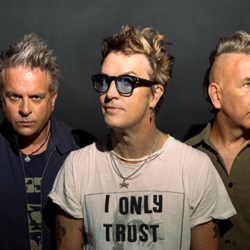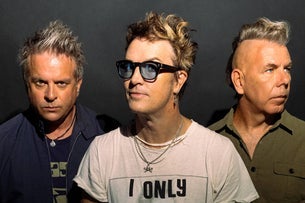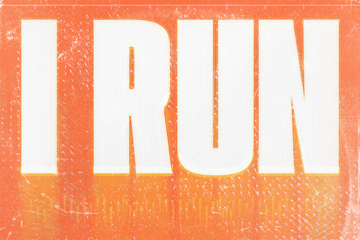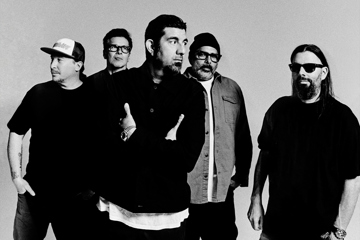How The Living End Threw Off The Shackles Of Society
As Aussie rock mainstays The Living End return for an eighth full-length, frontman Chris Cheney tells Brendan Crabb about his relationship with their breakthrough anthem.

The Living End's recent decision to launch Don't Lose It, lead single from new album Wunderbar at modest pub gigs in Sydney and Melbourne was greeted with considerable enthusiasm by the Aussie punkers' fan-base. However, a fellow journalist/photographer lamented to this scribe after the Sydney show that the rock veterans eschewed breakthrough hit Prisoner Of Society in favour of new material. “It didn't seem the right time and place to play it,” vocalist/guitarist Chris Cheney says when told of this sentiment. “God, hasn't he heard it a million times before like we all have?” he laughs, speaking while on tour in Hamburg, Germany.
“We're so into the (new) record, that we just went, 'Fuck it, everyone knows the other songs. This is the ideal opportunity to be a bit of a showcase of new songs.' We've always kind of done that. We used to go out and do these secret gigs where we'd just play all new material, sort of road-test it. We stand behind it [the new album], and I think the audience could see that. The one thing people said to me was that they have a lot of character and personality, these songs. The songs all have their own identities. In an era where people aren't making records anymore, we have made a record.”
What type of relationship does the front-man have with Prisoner Of Society nowadays? Cheney pauses before responding. “A love-hate one. No, I don't hate it, it's fine. It's forever going to be the song that kind of put us on the map first I suppose. I think it's a good song, I just don't like the recording of it, I don't like the version that we recorded... It was a different time. We were kind of part of that whole punk/pop thing, and just the vocals are sung in a certain way that I'm like, I just wouldn't sing it that way anymore,” the frontman laughs. “But I can appreciate the song, and I still think it's a good song.”
While having a healthy respect for their past, including playing heritage-themed shows previously, the aforementioned willingness to forge ahead has meant 20 years on from the multi-platinum success of their self-titled debut, the trio sought fresh ways to create on album number eight. The trio – also featuring co-founder, double bassist Scott Owen and long-time drummer Andy Strachan – decamped to wintry Berlin, Germany for recording and pre-production sessions on Wunderbar. They worked alongside producer Tobias Kuhn during the six-week stint.
“We only decided in like September that we were going to make the record, and then [by] January we were already making it,” Cheney laughs. “So there wasn't a huge turnaround. Trying to pack up my house in LA in shipping containers and think about relocating [back to Melbourne, where his bandmates also now reside] and trying to write a record at the same time was nuts.
“When we got to Germany, the songs still needed to be finished off and I really felt like they were influenced by just the surroundings. Every day I would get up, we were staying at an Airbnb and a hotel and a few different places, but you'd get up in the morning and then you'd walk to the studio. Just walking past the subway, past all the German signs, and your streets, sights and smells and everything, I found it was influencing me. It was just giving me this kind of... Just this different approach when I got to the studio each day because I was in a completely different environment. It's hard to say exactly how it influenced the record, but I definitely think it's got a lot of character that it wouldn't have had if I'd just been sitting in my bedroom all day, every day recording.”
Of the new record, the frontman dubs the multi-faceted Death Of The American Dream as a “kind of political” but a predominantly personal statement partially inspired by his living in Hollywood for several years, while adding that the rest of the tracks on the record are not necessarily political at all. “There's a couple of little statements here and there, but it's a very diverse record this one. Whereas [2016's] Shift was very introspective... That was actually quite dark and grim, to be honest, but this one I find is a little more optimistic. There's a little more hope and a few more different kinds of subject matter that we're tackling that I don't think we would have tackled in our twenties.
“We've never been like the Oils or something and made a proper, full-blown [political] statement. It's more just been about social issues and stuff that's going on, as opposed to laying down our opinion.”
Related Gigs











